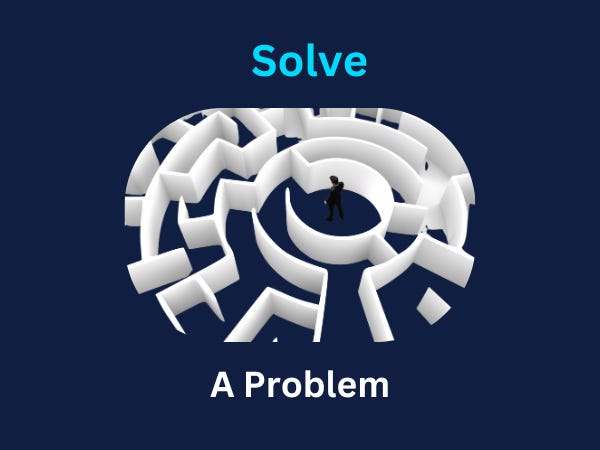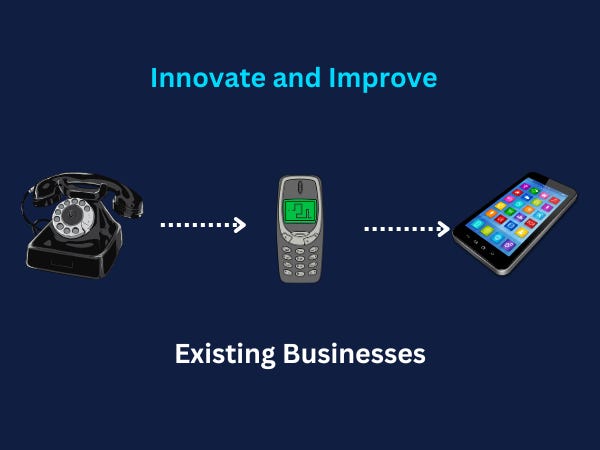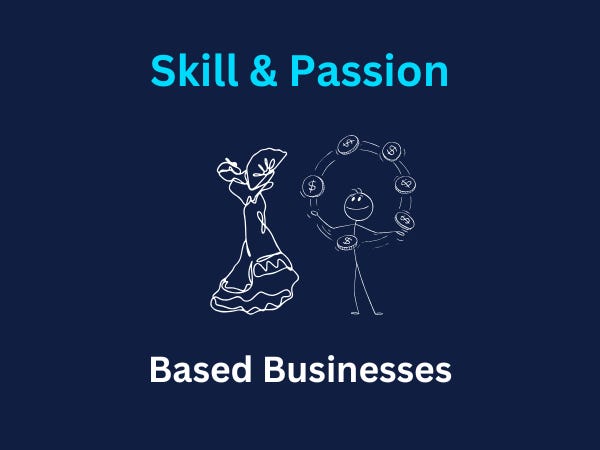Starting a business is an exciting adventure, But finding the right ideas can be challenging.
I search over 100 top companies and how they come up with ideas.
Those the majority started their businesses in these three effective ways:

1. Solve a Problem
Think about the everyday challenges you or the people around you face.
These problems are golden opportunities for creating a business.a
Imagine a village without electricity, and you decide to sell them affordable solar-powered lights, phone chargers, etc. That’s exactly what the Tanzanian entrepreneur Patrick Ngowi did.
When he started Helvetic Solar Contractors, he noticed that only 10% of Tanzanians had access to electricity.
With his solar panel company, he helped many small businesses and households get affordable electricity.
I wrote a newsletter about him, here’s the link: Patrick Ngowi.
By focusing on solving a real problem, you provide a valuable service that people genuinely need.
Another example is the struggle many households face in accessing clean water.
You could develop a solution, like an affordable water purification system, to improve the lives of your neighbors. That’s exactly what Rwandan entrepreneur Ishimwe Yvette did.
Her company, Iriba Water Group, delivers essential clean water to countless households, creates meaningful job opportunities, and empowers local communities.
Before diving in, talk to friends, family, and colleagues to make sure they share the same problem and would appreciate your solution. You can cold call, email, or DM them to find potential clients.
This way, you can focus on creating a Minimum Viable Product (MVP) or a Minimum Freemium Service (MFS).

2. Innovate or Improve Existing Businesses
Sometimes, the best business ideas come from improving something that already exists.
You might innovate an entire industry, just like Apple’s iPhone disrupted the mobile phone market.
You can Improve a product or service, as Google did with search engines.
Their PageRank algorithm delivered better results than competitors that relied solely on keyword matching.
You can also address a specific customer segment’s needs, like how restaurants use delivery apps for the customers that prefer dining at home, while others want to go to the restaurant.
Look around and see if any products or services could be improved.
If you notice something in your area that could be better, you might just have the next big idea.
Take Mark Essien, for example.
When he founded Hotels.ng, he revolutionized the hotel booking industry in Nigeria.
Before his startup, people, especially those in the diaspora struggled to find and book hotel rooms in Nigeria.
By improving an existing service and adding his unique touch, he created a platform that made hotel bookings seamless and accessible.
By enhancing what already exists and adding your own value, you can create something that stands out and offers even greater benefits to your customers.

3. Build on Your Skills and Passion
Nobody becomes good at something without spending countless hours practicing it.
If you love talking about football, even if it’s not your job, you might still be great at analyzing the game for others.
Now, imagine starting a newsletter, blog, or YouTube channel where you share your football insights.
What are the chances that, over time, you’ll learn more, refine your analysis, and even build a business around it? Pretty high, right?
Your unique talents and interests can be a powerful source of business ideas.
When you create a business around something you love and excel at, you’re more likely to stay motivated and enjoy the journey.
For instance, if you’re passionate about baking and love experimenting with creative recipes, you could start a bakery that offers unique tastes.
Similarly, if you have IT skills and enjoy working with computers, you might launch a company that helps businesses manage their IT systems more efficiently.
By combining your skills with your passions, you create a business that not only meets a market need but also brings you personal fulfillment.
Ask yourself these questions:
- Do you have a skill that others want to learn?
- What have people told you you’re naturally good at?
- What comes easily to you but seems difficult for others?
- How do you spend most of your free time?
Also, reflect on what you don’t enjoy, what bores you or feels exhausting.
The answers to these questions can lead to great business ideas. From there, choose the one you love the most and run with it.
Conclusion
By focusing on these three strategies, you can discover opportunities that not only have the potential to succeed but also bring meaningful benefits to your community.
Whether you’re addressing a local challenge, building on what you love, or innovating an existing businesses, these approaches can help you start a thriving business in Africa.



